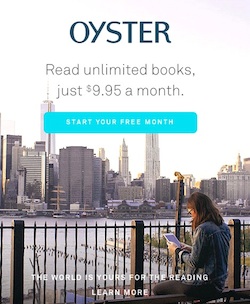Last week, Mark Coker of Smashwords published a 10-point manifesto, celebrating indie authors and the values we hold dear. It’s a great document that has moved many writers who use self-publishing platforms. The manifesto is quoted below, but there’s something missing. Can you spot it?
Mark Coker’s Indie Author Manifesto
We indie authors believe all writers are created equal, that all writers are endowed with natural creative potential, and that writers have an unalienable right to exercise, explore and realize their potential through the freedom of publication. I hold these truths to be self-evident:
- I am an indie author
- I have experienced the pleasure and satisfaction that comes from self-publishing
- I have a right to publish
- My creative control is important to me. I decide when, where and how my writing graduates to become a published book.
- Indie does not mean “alone.” I choose my partners.
- I shall not bow beholden or subservient to any publisher. In my business relationships, I seek partnership, fairness, equity and mutually aligned interests.
- We indie authors comprise diverse writers unified by a common purpose to advance, empower and celebrate writers everywhere.
- I am a professional. I take pride in my work, and I strive to improve my craft to better serve my readers, myself, my fellow indie authors and the culture of books
- My writing is valuable and important. This value and importance cannot be measured by commercial sales alone.
- I celebrate the success of my fellow indie authors, for their success is mine, and mine theirs. Together we are pioneering a better future for books marked by greater quality, creativity, diversity, choice, availability, affordability and accessibility.
The missing element is in #6. I’ve added it below, in caps:
6. I shall not bow beholden or subservient to any publisher OR PUBLISHING PLATFORM. In my business relationships, I seek partnership, fairness, equity and mutually aligned interests.
When promoting the rights and interests of indie authors, the hardware and software publishing platforms operated by Amazon, Apple, Google, B&N, Smashwords, and others must be addressed. They have not only made it possible for writers to bypass the old publishing gatekeepers, they wield enourmous power over what we do now and in the future.
Mark surely recognizes this. He regularly (and rightly) questions the power that Amazon has over the marketplace. But he has other interests at stake in the world of platforms. Coker also leads a small (but important) publishing platform. I know he respects and understands indie authors, and the interests of Smashwords is generally aligned with that of the authors it serves. However, I am skeptical of some of the other platforms in the marketplace. They include Bowker and its predatory ISBN monopoly, iUniverse’s self-publishing paperback service, and more recently, the subscription book services Scribd and Oyster (see Scribd’s ebook subscription service: Why authors should be skeptical).
These last two platforms’ interests are not aligned with those of indie authors — instead, it’s all about building market share (and the profits of their VC investors), sidelining Amazon’s digital downloads model and cutting deals with big publishers and ebook distributors (including Smashwords). As I noted in Authors as an afterthought in the ebook subscription marketplace:
I find it very telling that Scribd.com heavily promotes unlimited books for readers, and offers resources for publishers and partners, yet there isn’t a single page in their support section that explains to authors what they will be getting from the service. Clearly, authors are not a priority.
I just checked the Scribd FAQ, and three months after I wrote that post there is still no information about the benefits for indie authors, the size of the cut they’ll receive, etc. Indie authors are clearly an afterthought.
So, in summary, I welcome Coker’s Indie Author Manifesto. But by adding three simple words — “or publishing platform” — the manifesto would be so much stronger.
I welcome your comments below.

